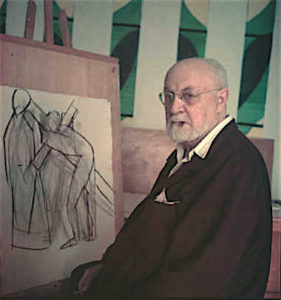 “We can remember minutely and precisely only the things which never really happened to us.”
“We can remember minutely and precisely only the things which never really happened to us.”
Eric Hoffer, “Thoughts of Eric Hoffer, Including: ‘Absolute Faith Corrupts Absolutely’” (The New York Times Magazine, April 25, 1971)
Terry Teachout on the arts in New York City
In today’s Wall Street Journal “Sightings” column, I write about some of my favorite narrative biographies. Here’s an excerpt.
* * *
Truman Capote kicked up a fuss when he proclaimed to the world that “In Cold Blood,” his book about a pair of mass murderers, was a “non-fiction novel.” I’ve never understood why so many people found his clever notion so irritating, since “In Cold Blood” was exactly that, a piece of book-length journalism that, as he explained to George Plimpton, “employed all the techniques of fictional art but was nevertheless immaculately factual.” (Actually, it wasn’t, but that’s beside the point.)
 Nor do I understand why Capote’s oft-derided phrase has never quite caught on. The same phrase, after all, can be applied with equal validity to the kind of book that scholars call a “narrative biography,” one that is deliberately intended to appeal to a popular audience of educated non-specialist readers….
Nor do I understand why Capote’s oft-derided phrase has never quite caught on. The same phrase, after all, can be applied with equal validity to the kind of book that scholars call a “narrative biography,” one that is deliberately intended to appeal to a popular audience of educated non-specialist readers….
It happens that I’ve finally gotten around to reading Hilary Spurling’s two-volume biography of Henri Matisse, a quintessential example of narrative biography at its very best. Yes, it’s meticulously researched and carefully sourced, but Ms. Spurling has also looked for and found the “plot” of Matisse’s long, productive life, shaping its successive episodes with a novelist’s feel for characterization dramatic ebb and flow.
I recently mentioned on Twitter (where I’m @terryteachout) that “Matisse the Unknown,” Ms. Spurling’s first volume, was looking like a likely candidate for my short list of favorite biographies. One of my followers thereupon asked me to name the other books on the list, suggesting that to do so might make a good column….
* * *
Read the whole thing here.
 Arturo Toscanini and the NBC Symphony perform Brahms’ First Symphony. This concert, directed by Kirk Browning, was originally telecast live by NBC from Carnegie Hall on November 3, 1951:
Arturo Toscanini and the NBC Symphony perform Brahms’ First Symphony. This concert, directed by Kirk Browning, was originally telecast live by NBC from Carnegie Hall on November 3, 1951:
(This is the latest in a series of arts-related videos that appear in this space each Monday, Wednesday, and Friday)
I’ll be the first to admit that I didn’t see any of those shows under anything like ideal circumstances. I would have preferred to savor each one individually instead of cramming them down seriatim like a contestant in a wienie-eating contest, just as I would have preferred to clear my head between shows by partaking of other kinds of art. No such luck: I didn’t visit any galleries, didn’t watch any movies, didn’t listen to any music other than as background accompaniment to my daily labors. I did manage to read a book, but it was for professional reasons, not pleasure….
Read the whole thing here.
An ArtsJournal Blog